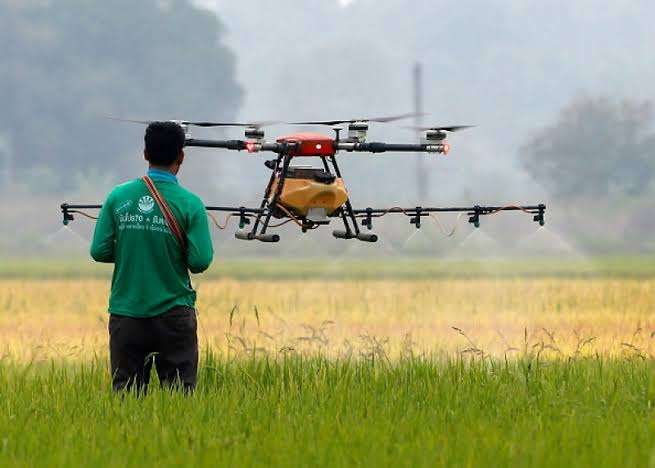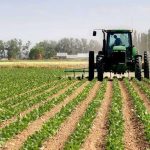Africa’s agricultural sector has been the heartbeat of economies across the continent. Yet today, millions of smallholder farmers still face numerous challenges. But a new generation of agritech startups are changing the game.
Leveraging technology, data, and smart logistics, these agritech startups are building a future where farming in Africa is sustainable, profitable, and scalable.
Across Africa, innovators are deploying powerful tools to empower farmers and streamline agricultural economies, and are reimagining the farm-to-market supply chain.
Here, Techparley’s Quadri Adejumo, presents a deep dive into ten African agritech startups transforming food systems—and the lives behind them.
Winich Farms (Nigeria)
Founded by Riches Attai, Winich Farms is digitising Nigeria’s agricultural supply chain by eliminating middlemen and connecting smallholder farmers directly with commercial offtakers.
Through a blend of technology and logistics infrastructure, Winich provides traceability, fair pricing, and embedded finance to tens of thousands of farmers.
The company also scales its smart card issuance to farmers, linking each one to a Bank Verification Number (BVN). This step allows farmers to build digital identities, unlock credit, and access insurance via third-party partnerships.
RoboCare (Tunisia)
Tunisia’s RoboCare is taking a scientific leap in greenhouse farming. At the core of its innovation lies high-resolution imaging and AI algorithms that detect plant stress even before pests appear.
The startup also integrates satellite and drone imagery with AI to offer broader-scale surveillance across entire farms. This approach equips farmers with the insights needed to act, ultimately reducing chemical usage and boosting productivity.
AkoFresh (Ghana)
For many smallholder farmers in Ghana, the post-harvest period has long been a race against time. AkoFresh is changing that equation through its solar-powered cold storage systems.
Designed specifically for rural farming communities, AkoFresh’s cold rooms extend the shelf life of fruits and vegetables by up to three weeks. The system is smart and sustainable: it includes solar panels, temperature sensors, compressors, and air coolers all working in tandem to maintain optimal conditions.
AgriPredict (Zambia)
Based in Lusaka, AgriPredict is bringing AI-powered decision-making to the fields. Its flagship platform provides hyper-localised insights—ranging from disease detection and pest predictions to tailored weather forecasts.
By aggregating data on soil composition, crop history, and market demand, AgriPredict helps farmers plan better and farm smarter. Crucially, AgriPredict’s interface is built for accessibility. Whether through a mobile app or USSD code, even farmers without smartphones can access crucial information.
Apollo Agriculture (Kenya)
Apollo Agriculture is rethinking agricultural finance and access. Through an end-to-end digital system, the Kenyan startup provides farmers with inputs, credit, insurance, and advisory services.
With the model, farmers receive vouchers to redeem supplies locally, and repayment is scheduled after harvest. What makes Apollo stand out is its use of machine learning to assess credit risk and farm potential, enabling data-driven lending at scale.
Aerobotics (South Africa)
South African agritech pioneer Aerobotics is helping farmers see their fields from an entirely new perspective. Specialising in aerial imagery and precision agriculture, Aerobotics deploys drones and AI software to monitor crop health, identify diseases, and optimise inputs.
Their analytics dashboard allows farmers to detect threats before they escalate, enabling precision treatment of affected areas. Aerobotics provides actionable insights that enhance yield, reduce resource wastage, and improve sustainability.
Thrive Agric (Nigeria)
Thrive Agric’s model is built around inclusive agricultural finance. The startup connects institutional investors with thousands of smallholder farmers, providing the latter with access to capital, inputs, mechanisation, and advisory services.
What distinguishes Thrive is its strong digital infrastructure. With embedded technologies for crop monitoring, field agent reporting, and automated repayments, it enables scale without compromising transparency.
EzyAgric (Uganda)
Launched in 2015, Uganda’s EzyAgric offers farmers access to agro-inputs, advisory services, financing, warehousing, and market linkages. By aggregating customer demand, it secures bulk discounts on inputs and ensures higher selling prices for harvested produce.
Farmers can manage their entire operation through EzyAgric’s digital ecosystem. They can track farm activities, receive alerts, apply for loans, or schedule deliveries. It’s not just agritech, it’s agribusiness reimagined for the digital age.
Oko Finance (Mali)
Natural disasters remain a critical threat to African farmers, but Mali-based Oko Finance is offering a shield. Founded in 2018, the startup provides satellite-based crop insurance using real-time weather data. Farmers can sign up and claim payouts via mobile phones.
Oko Finance operates in Mali, Uganda, and Côte d’Ivoire, using hyper-local weather models to assess risks and automate compensation. In doing so, it protects incomes, promotes climate resilience, and builds farmer confidence in a volatile world.
Releaf Earth (Nigeria)
Where most agritechs focus on production or distribution, Releaf Earth has carved a niche in agro-processing, starting with the palm oil industry. It automates the cracking of palm nuts, increasing throughput for processors while reducing waste.
Releaf’s technology has helped reduce inefficiencies in palm kernel processing, empowering smallholder farmers and local processors alike. The startup demonstrates how digitising agriculture can unlock massive value for rural economies.
A Continental Movement in Motion
These startups exemplify the potential of African agritech to redefine the continent’s agricultural economy. From AI-driven diagnostics to post-harvest innovations and micro-insurance, each startup contributes a piece to the continent’s agricultural sector.
Together, these startups represent more than innovation. They are building the structure of a new African agricultural economy, one that is data-driven, inclusive, climate-smart, and investor-ready.
The path to sustainable food systems in Africa may be long, but with visionaries like these building bridges between innovation and impact, the future of farming looks smarter, safer, and far more inclusive.
Frequently Asked Questions
What is agritech, and why is it important in Africa?
Agritech refers to the use of technology and innovation to improve farming processes. In Africa, agritech is crucial for addressing food insecurity, improving productivity, reducing post-harvest losses, and empowering smallholder farmers through digital tools and services.
How are African agritech startups using artificial intelligence in farming?
Startups are leveraging AI to detect plant diseases, predict pest outbreaks, analyse weather data, and offer personalised farming recommendations, allowing farmers to take preventive actions and make informed decisions.
What are the benefits of drone and aerial imagery in agriculture?
Startups like Aerobotics use drones to survey farms and capture real-time data on crop health. These insights enable precision farming, helping farmers detect problems early and manage resources like water and fertiliser more efficiently.
Are these agritech innovations accessible to rural or low-tech farmers?
Yes. Many startups, including AgriPredict and Apollo Agriculture, provide services via USSD or SMS, ensuring that even farmers without smartphones or internet access can benefit from technology-driven agriculture.
What impact are these startups having on food security in Africa?
By reducing losses, improving yields, enabling climate resilience, and connecting farmers to finance and markets, these startups are helping to stabilise food systems and support rural livelihoods across the continent.




